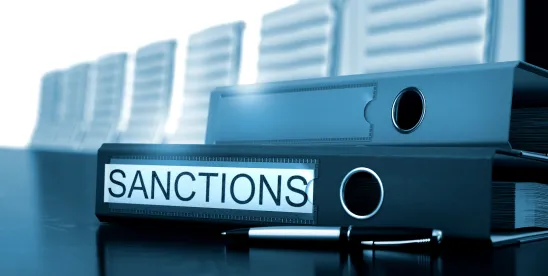What Happened:
On April 24, 2024, President Biden signed into law the Fentanyl Eradication and Narcotics Deterrence (FEND) Off Fentanyl Act, as part of a national security legislative package, which, among other things, amended the International Emergency Economic Powers Act (IEEPA) and the Trading with the Enemy Act (TWEA) to extend the statute of limitations for the enforcement of sanctions violations from five years to ten years (the Amendment). The ten-year statute of limitations applies to civil and criminal enforcement for all sanctions programs.
The Bottom Line:
The Amendment changes the lookback period for sanctions compliance from five years to ten years, impacting how sanctions compliance is treated internally at companies with international touchpoints, as well as counterparty diligence in corporate transactions. Companies will need to update their compliance programs to account for the extended period.
The Full Story:
IEEPA authorizes the President of the United States to impose economic sanctions by declaring a national emergency in response to any unusual or extraordinary threat to the national security of the United States that originates outside of the United States. IEEPA authorizes both civil enforcement actions and criminal prosecution against persons found to have violated US sanctions and previously established a five-year statute of limitations on enforcement.
As part of a broader national security package, President Biden signed into law the FEND Off Fentanyl Act on April 24, 2024. The Act requires the President to, among other things, impose sanctions under IEEPA on any person involved in the trafficking of Fentanyl through a forthcoming Fentanyl sanctions regime and amends IEEPA to extend the statute of limitations on enforcement to ten years. Critically, the extended statute of limitations under the Amendment applies not only to the forthcoming Fentanyl sanctions regime, but to almost all sanctions programs administered by the US Department of Treasury’s Office of Foreign Assets Control (OFAC). The Amendment also impacts other programs authorized under IEEPA, including some programs administered by the US Department of Commerce’s Bureau of Industry and Security (BIS), such as the Information and Communications Technology and Services (ICTS) Program, as well as other programs administered by the Department of Justice and Department of the Treasury.
The Amendment impacts compliance obligations for US companies and others seeking to comply with US sanctions. For example, OFAC regulations implementing US sanctions include record-keeping requirements for financial institutions with respect to certain transactions that currently track the previous five-year limitations period under IEEPA and it is likely that OFAC will amend its regulations to increase record-keeping requirements to ten years. Similarly, OFAC guidance on effective sanctions compliance has pegged recommended record retention periods to the five year limitations period. For example, the “safe harbor” for service providers under the prohibition on maritime services for Russian oil under the Russian oil price cap sanctions requires that persons retain records for five years. It is likely that OFAC will update its guidance to reflect the new ten-year limitations period following the Amendment and companies should carefully consider updates to sanctions compliance programs accordingly.
The Amendment does not address retroactive application. Retroactive criminal prosecution (i.e., for conduct currently beyond the prior five year limitations period) raises constitutional concerns. It is currently unclear whether OFAC will seek to bring civil enforcement actions for conduct already beyond the five-year limitations period.
The new ten-year limitations period should also be considered in conducting sanctions diligence on external counterparties. Companies will need to consider the longer lookback period when evaluating potential mergers and acquisitions and when seeking or providing representations and warranties involving sanctions compliance.







 />i
/>i

